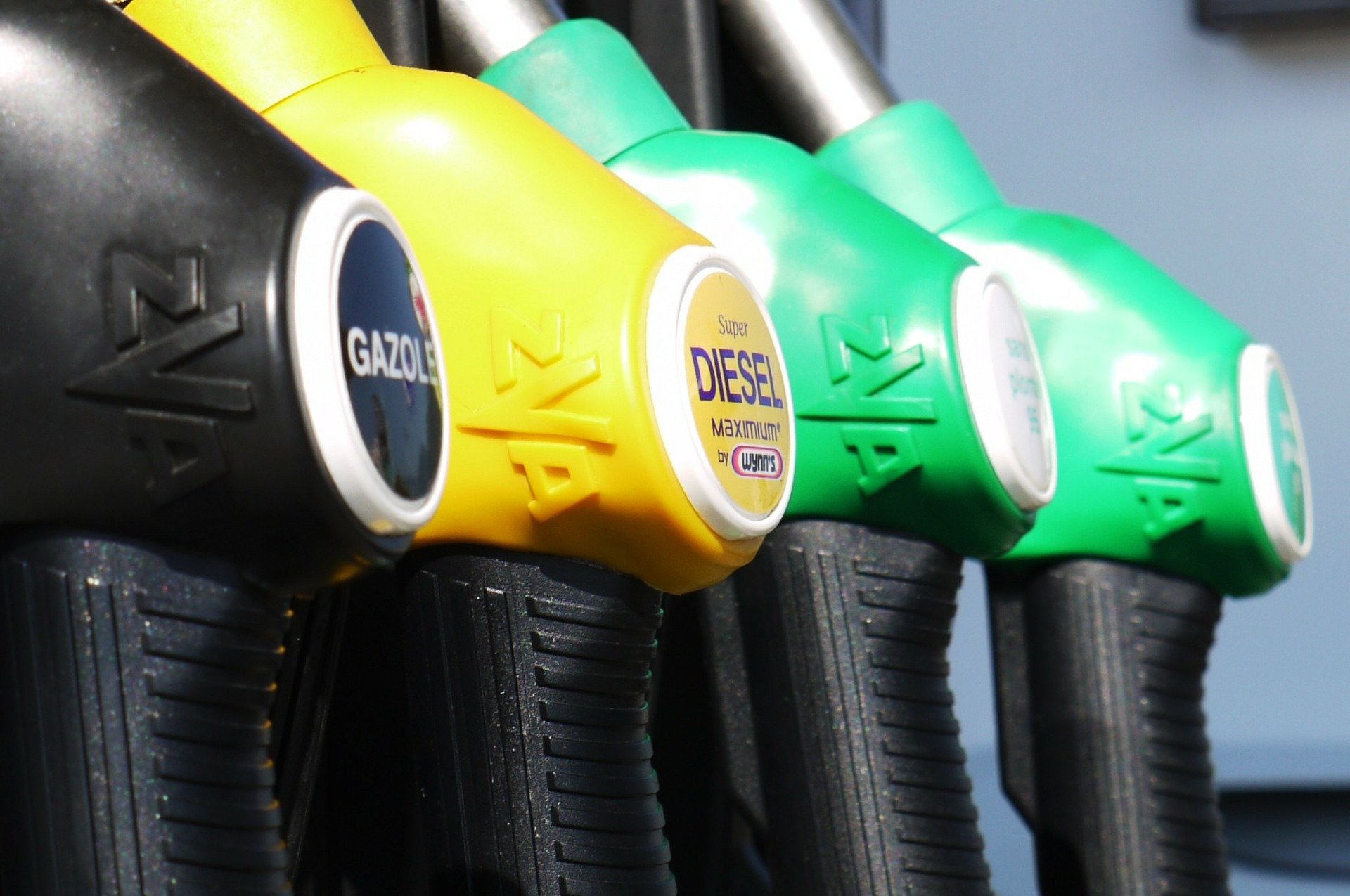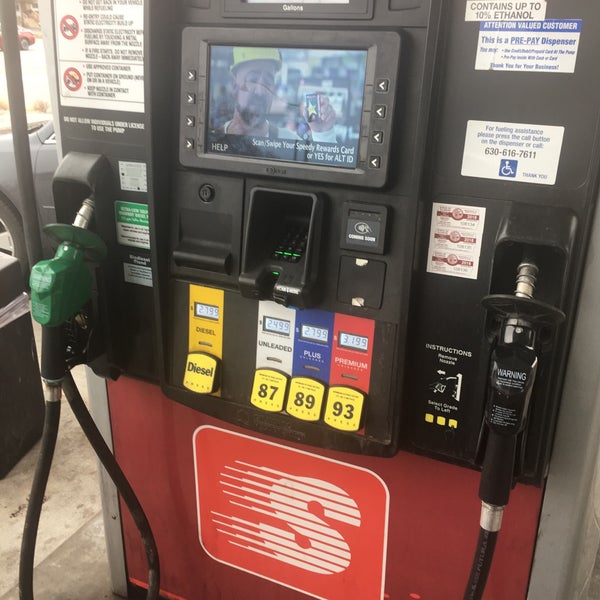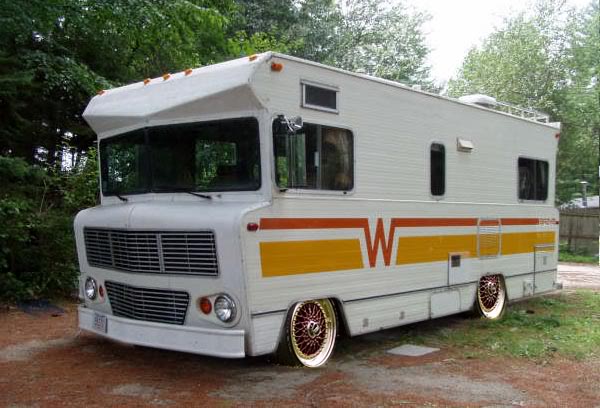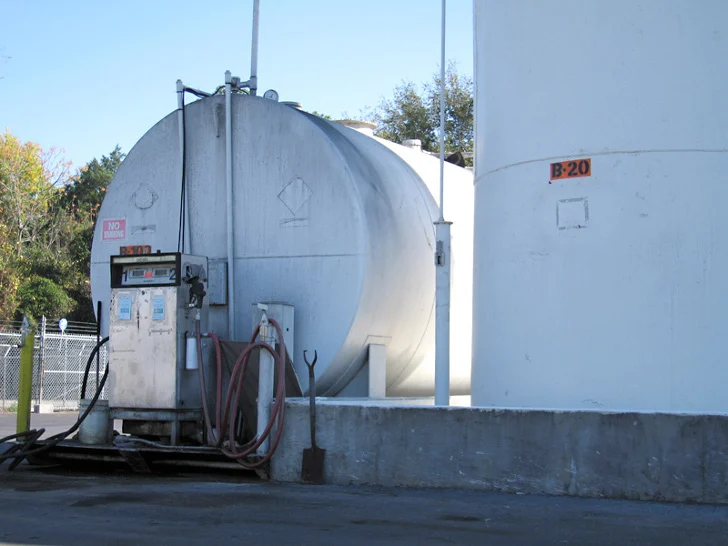
Don’t Make This Costly Mistake At RV Gas Stations
For anyone driving a diesel truck towing an RV or driving a diesel motorhome, large RV friendly gas stations are a blessing. An oasis of fuel and plenty of space to navigate, RV gas stations make it easy to maneuver our prize rigs in and out.
There is, however, a hidden danger in these RV gas stations. No, we aren’t talking about those hot dogs spinning in the roller at the food island, though that could be a danger too. It’s the inconsistency of fuel pump color designation, more specifically, the diesel pump.
What is the correct diesel pump color?
While the majority of drivers would expect and usually find that the diesel pump handle color is green, there is nothing official that mandates this. AAA Tire & Auto manager Jason Brown warns here:
“There are no legal requirements for fuel nozzle colors. Today, diesel fuel is dispensed through nozzles that may be green, black, yellow or any other color the retailer desires.”
Case in point, the BP branded fuel stations, whose corporate color scheme is based on a primary green, often dress their gasoline pumps and handles in their corporate color. Consequently, you may find that the diesel pump handles are yellow, black, or any other color for that matter. This practice recently caught the attention of RV enthusiasts frequenting a Forest River owners forum. The reality is, there is no standard when it comes to pump handle colors.
Diesel fuel pump nozzles are a different size
The larger diameter of the diesel fuel pump nozzle is helpful in preventing gasoline engine owners from accidentally putting diesel fuel in their gas engines. It does not work the other way, however.
A diesel equipped vehicle owner, perhaps a bit road weary or distracted, could easily put gasoline into their diesel fuel tank if they are not careful. Getting in the habit of just grabbing the green handle could be a very costly mistake for a diesel engine owner. With no standard to rely on, it’s up to the vehicle owner, as it should be, to ensure they put the proper fuel in their vehicle.

Unleaded gas in a diesel tank
The repercussions of putting gasoline into a diesel fuel tank range from terrible to catastrophic. Today’s modern diesel engines tend to die or not start when gasoline is introduced to the diesel engine. Old engines are less forgiving.
The cost of such a mistake can be anywhere from draining the fuel tank and flushing clean diesel through the system and replacing the filters, to a complete fuel system rebuild costing up to $10,000.
Truck stops with RV lanes
You would think that truck stops with RV lanes would solve the problem, but it doesn’t. For mixed fuel pump islands, color coding and labeling issues still apply. For diesel-only lanes, you will only get diesel fuel, but you also have access to DEF. Diesel Exhaust Fluid, or DEF, is now dispensed next to most diesel fuel pumps in trucking lanes.
It’s usually pretty clear which handle is diesel fuel and which handle is DEF. The diesel fuel nozzle is also larger than the DEF opening, so you shouldn’t be able to pollute your DEF tank with diesel. However, fatigue and distraction can factor in to accidentally adding DEF to your diesel fuel. According to Martin Implement, a heavy equipment provider:
“If you put diesel into a DEF tank, diesel is less dense than DEF so that it will float on the DEF. If diesel enters the SCR catalyst, significant damage can occur that may require servicing or a costly replacement of the catalyst. If you put DEF into a diesel tank, the diesel becomes contaminated because DEF is composed of urea and water. If the equipment is started, introducing the diesel/DEF mixture into the engine, you’ll end up with longer term consequences. If the DEF is introduced to a diesel storage tank, the DEF will, if not removed, cause damage to the fuel system. DEF is corrosive and harmful to many metals.”
RV gas stations are helpful
RV gas stations are great for those owners with large RVs, powered by gasoline engines. The diesel folks have it pretty easy. As long as they pay attention, getting in and out of the 18 wheeler lanes is straightforward and efficient.
The gas folks not only have to worry about the pump handle colors, but positioning as well. Not every gas pump is RV-friendly. Tail swing can be your worst enemy. Getting in a hurry and getting distracted will always lead to trouble when fueling up.
RV owners should take the time and plan ahead. Use a tool like RV LIFE Trip Wizard to plan and vet your entire trip in advance. This includes finding RV gas stations for all your fuel stops and checking those locations out with satellite and street few, ahead of time.
RVers, have you been to a campground lately? Don’t forget to leave a review! Reviews help other RVers like yourself, and they help the campground. Leave a campground review today!



